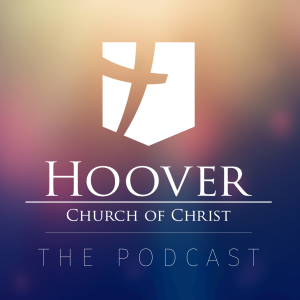
Hoover Church of Christ Sermons
Religion & Spirituality:Christianity

Judah was in a truly desperate situation—exiled in Babylon with no hope of ever getting home (from a human perspective, at least). To illustrate their situation, God takes Ezekiel and by the Spirit puts him in a valley of dry bones. There was no sign of life in them, representing Judah’s hopeless existence.
But then God breathed new life into them, and he told Ezekiel what this vision meant. God would breathe new life into his people and restore them to their land. And, as you may remember, this is exactly what happened. God raised up a Persian king who defeated the Babylonians and let the people return to Jerusalem and rebuild the walls, the temple, and their lives.
The story had real significance to the exiled people, of course, but perhaps it’s appropriate to extrapolate certain applications from the story to our lives. It applies to our spiritual situations—we were (or are) dead in our sins and consequently helpless and hopeless (see Ephesians 2:1-10). But God stepped in through Jesus Christ . . .
Perhaps it also applies to other desperation situations in which we find ourselves. Can God resurrect a dead marriage? Can he restore the faith of our children or other loved ones? Can he heal our addictions? Can he take truly hopeless situations and breathe new life into them?
The valley of dry bones says he can. And of course, we see that most clearly in the dead body that lay in the tomb from Friday till everything changed on Sunday morning, foreshadowing our own future resurrections when our “dry bones” will live again. God loves to breathe new life into things that are dead.
More Episodes
 2018-08-02
2018-08-02
 2018-07-26
2018-07-26
 2018-07-22
2018-07-22
 2018-07-19
2018-07-19
 2018-07-15
2018-07-15
 2018-07-15
2018-07-15
 2018-07-08
2018-07-08
 2018-07-01
2018-07-01
 2018-06-24
2018-06-24
 2018-06-24
2018-06-24
 2018-06-10
2018-06-10
 2018-06-10
2018-06-10
 2018-06-07
2018-06-07
 2018-06-03
2018-06-03
 2018-05-27
2018-05-27
 2018-05-21
2018-05-21
Create your
podcast in
minutes
- Full-featured podcast site
- Unlimited storage and bandwidth
- Comprehensive podcast stats
- Distribute to Apple Podcasts, Spotify, and more
- Make money with your podcast
It is Free
- Privacy Policy
- Cookie Policy
- Terms of Use
- Consent Preferences
- Copyright © 2015-2024 Podbean.com





